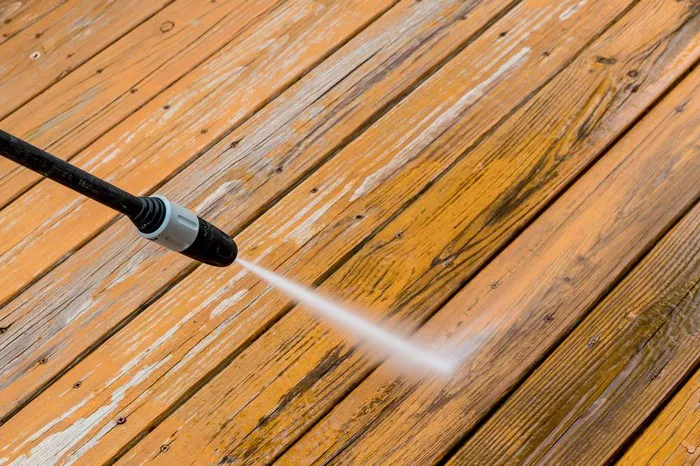Pressure washers are powerful cleaning tools used to tackle tough dirt and grime on various surfaces. They have become essential for maintaining driveways, decks, patios, and even vehicles. But how long can you expect a pressure washer to last? The lifespan of a pressure washer depends on several factors, including its quality, maintenance, and frequency of use.
This article explores the average lifespan of pressure washers, factors influencing their durability, and tips to extend their longevity.
Understanding the Lifespan of a Pressure Washer
What Is the Average Lifespan?
The average lifespan of a pressure washer typically ranges from 500 to 3,000 hours of use. This range varies widely based on the type and quality of the pressure washer. For example, residential pressure washers generally last between 500 and 1,000 hours, while commercial-grade machines can reach up to 3,000 hours or more.
Lifespan Based on Types of Pressure Washers
Pressure washers come in different types, and their durability varies accordingly.
Electric Pressure Washers
Electric pressure washers are commonly used for residential cleaning tasks. They are lightweight, cost-effective, and require minimal maintenance. However, their motors and pumps are less durable than gas-powered models, giving them a lifespan of approximately 5 to 10 years with moderate use.
Gas-Powered Pressure Washers
Gas-powered pressure washers are more robust and suitable for heavy-duty tasks. They typically last longer than electric models, with lifespans ranging from 10 to 15 years, provided they are properly maintained.
Commercial-Grade Pressure Washers
These machines are designed for frequent and demanding use. Built with high-quality components, commercial-grade pressure washers can last up to 20 years or more, depending on the brand and care.
Factors Affecting the Lifespan of a Pressure Washer
Frequency of Use
How often you use your pressure washer significantly impacts its longevity. A machine used weekly for commercial purposes will wear out faster than one used a few times a year for residential cleaning.
Quality of Components
The quality of the pump, motor, and other parts determines the overall durability of a pressure washer. High-quality models from reputable brands tend to last longer.
Maintenance Practices
Proper maintenance is essential to prolong the life of a pressure washer. Neglecting regular care can lead to premature wear and tear.
Operating Conditions
The conditions under which a pressure washer is used also play a role. Using the machine in extreme heat or cold, or exposing it to harsh chemicals, can reduce its lifespan.
Signs Your Pressure Washer May Be Failing
Decreased Pressure
One of the first signs of a failing pressure washer is a drop in water pressure. This can indicate problems with the pump or internal components.
Leaks
Water leaks from hoses or the machine itself are a sign of wear and tear. These leaks can lead to reduced efficiency and may require repairs.
Unusual Noises
Unusual sounds, such as grinding or squealing, often point to mechanical issues. These noises should not be ignored, as they may indicate a failing pump or motor.
Frequent Overheating
If your pressure washer overheats frequently, it could signal an internal problem. This issue is more common in electric models with less robust motors.
Tips to Extend the Lifespan of Your Pressure Washer
Use the Correct Settings
Always use the appropriate pressure and nozzle for the task at hand. Overworking the machine with excessive pressure can strain the pump and other components.
Clean and Store Properly
After each use, clean the machine thoroughly to remove dirt, debris, and chemical residues. Store it in a dry, cool place to protect it from moisture and temperature extremes.
Perform Regular Maintenance
Regularly check for worn-out parts, clean the filters, and lubricate moving components. Replace damaged hoses and fittings promptly to prevent further issues.
Use Fresh Fuel and Proper Oils
For gas-powered models, always use fresh fuel to avoid clogging the engine. Change the oil regularly to keep the motor running smoothly.
When to Replace Your Pressure Washer
Cost of Repairs vs. Replacement
If repairs become frequent and costly, it may be more economical to replace the pressure washer. Compare the cost of repairs with the price of a new machine to make an informed decision.
Declining Performance
If your pressure washer no longer performs efficiently despite regular maintenance, it may be time to invest in a new one.
Upgrading to a Better Model
Sometimes, upgrading to a newer, more efficient model is the best choice, especially if your current pressure washer cannot meet your cleaning needs.
Conclusion
The lifespan of a pressure washer depends on its type, quality, maintenance, and usage. While residential electric models may last 5 to 10 years, commercial-grade machines can exceed 20 years with proper care.
To get the most out of your pressure washer, follow recommended maintenance practices, use it under suitable conditions, and address issues promptly. When the time comes, knowing when to repair or replace your machine ensures you continue to enjoy efficient and reliable cleaning performance. Investing in a high-quality pressure washer and taking good care of it will provide years of effective service.
Related topics:
Do Pressure Washers Need Pressurized Water Supply?
How Much PSI Does a Pressure Washer Use to Clean a Driveway?

